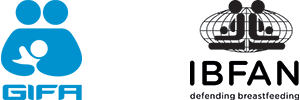
Early life factors and COVID-19 infection in England: A prospective analysis of UK Biobank participants. A Didikoglu et al. April 2021. https://doi.org/10.1016/j.earlhumdev.2021.105326
Highlights
- Low birth weight was associated with hospitalisation due to COVID-19.
- The odds of contracting COVID-19 were 12% lower among respondents who were breastfed when they were babies.
- People who reported that their mother smoked when they were born had 20% higher odds of COVID-19 infection and 24% higher odds of hospitalisation.
Abstract
While smoking [2] and the presence of chronic diseases are susceptibility factors for COVID-19 infection, there is a wide variation in the risk of contracting the disease that might be explained by factors determined during early life.
Using a large UK population cohort (UK Biobank) this study aimed to identify associations between early life factors, including maternal smoking, breastfeeding, birth month and birthweight, and the risk of COVID-19 infection and hospitalisation.
COVID-19 test results from English participants (not from Scotland, Wales and Northern Ireland) were collected between 16th March 2020 and 21st December 2020, and were provided by Public Health England (PHE). The study population was of 384,816 participants. The study categorised respondents as breastfed if they confirmed that they were breastfed when they were babies.
The authors of this study performed a multivariable logistic regression models to estimate the odds ratios of COVID-19 infection (7733 positive compared to 377,083 remaining participants) and inpatient due to COVID-19 (2494 inpatient compared to 382,322 remaining participants). The main predictors were maternal smoking around birth, breastfed as a baby, birth month and birthweight.
The number of participants reported that they had breastfed were proportionally lower in those who tested positive for COVID-19 infection and who were hospitalised compared to those not tested.
Respondents who were breastfed had overall 12% lower odds of contracting COVID-19 (95%CI 0.83 to 0.93). This protective effect of having breastfed was present in both peaks. Breastfeeding was negatively associated with hospitalisation only in the first peak (adjusted OR 0.83, 95%CI 0.71 to 0.97).
Breastfeeding had a significant relationship with lower risk of COVID-19 infection. This result supports a US study which showed that breastfeeding for at least 6 months provides greater protection against respiratory tract infections compared with shorter breastfeeding periods. Breastfeeding has also been shown to have protective effects against lower respiratory tract infection in the first year of life, and this study suggests that this effect may last into adulthood.
